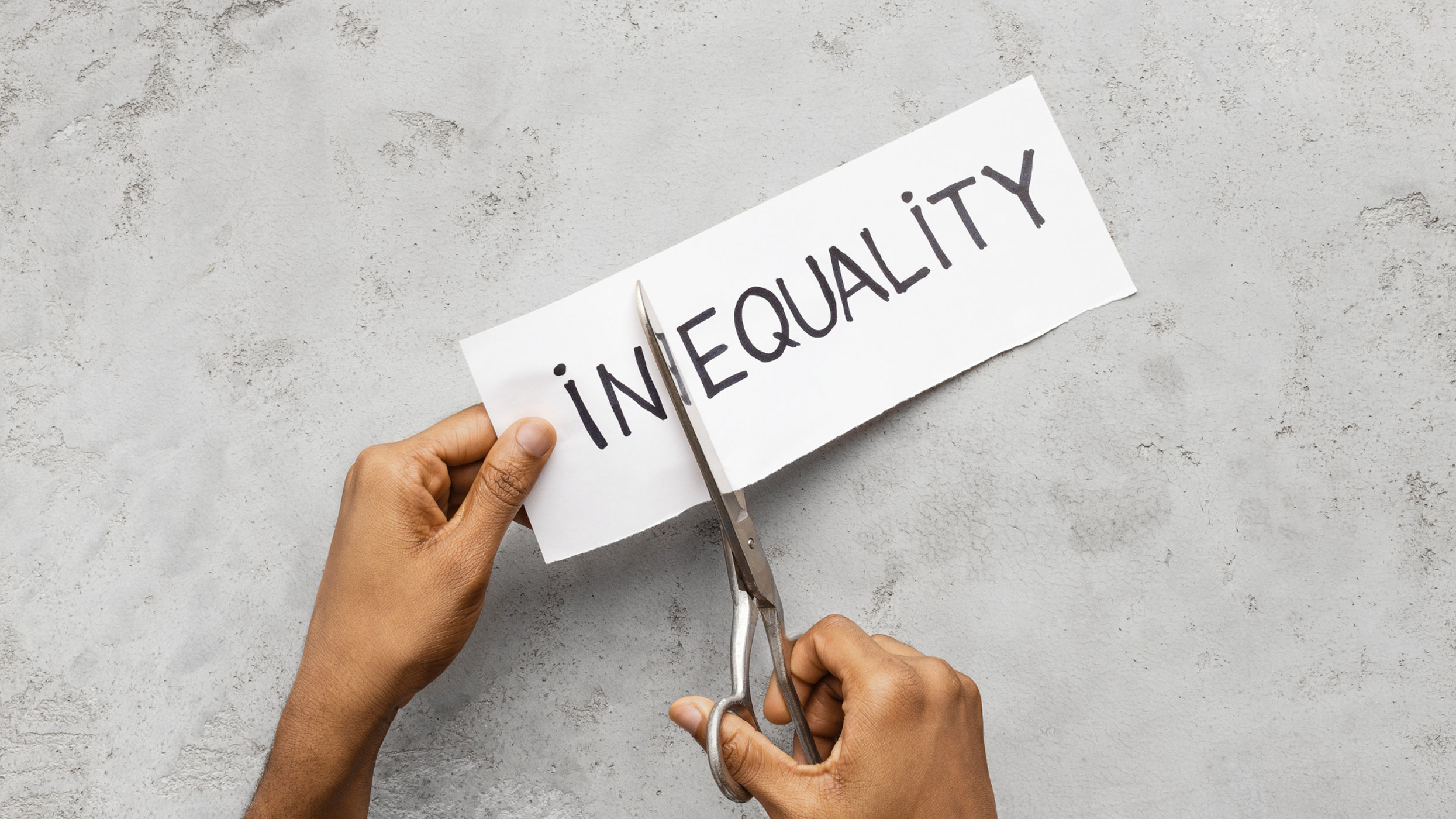Wealth Inequality in Asia

A Harsh Reality in a Flawed World
No matter where you travel in the world, you’re likely to encounter people living in poverty. Even the wealthiest cities have some areas where people struggle financially. Jesus said to his disciples, “You will always have the poor among you” (John 12:8). However, this doesn’t mean poverty is okay. It simply reflects the harsh reality that in our flawed world: some people won’t have the same chances to gain wealth.
While we can’t completely eradicate poverty, Christians are called to take action to reduce it. In one sense, how we respond to this problem shows how much we understand the message of Christianity. Ignoring it isn’t an option. The Bible tells us that God cares for those struggling, such as the oppressed, orphans, and widows (Isa 1:17). Jesus Christ taught that helping those in need is the same as helping him (Matt 25:44-45).
Pervasive Wealth Inequality in Asia
This is a global problem, but the situation in Asia is particularly alarming. Despite impressive economic growth in recent decades, over 320 million Asians still live in extreme poverty.1 This vast region remains home to a significant portion of some of the world’s poorest people.
In Vinoth Ramchandra’s thought-provoking piece — “The Eye of the Needle: Wealth and Poverty” in Asian Christian Ethics — he calls on local churches to actively fight poverty in Asia.2 Ramachandra lays out Asia’s economic challenges in stark terms: exploited workers, limited opportunities for the poor, and unbalanced wealth distribution.
Ramachandra notes that conventional economic systems in Asia often create inequality and hardship for workers. One example is India’s small farmers. Without access to reliable banks, they are forced to borrow from moneylenders with unfair terms. This makes them especially vulnerable during droughts. Misled into believing genetically modified cotton seeds would improve their lives, many took on even more debt. Unfortunately, this strategy backfired, driving them only deeper into poverty. Tragically, many Indian farmers have been driven to suicide.3 This extreme example highlights the radical results of unjust systems on the poorest in our society.
To help Christians think about how to respond to this reality, Ramachandra draws on two notable features: (1) key biblical teachings and (2) relevant writings of the early Church Fathers.
Key Biblical Teachings
A biblical response to poverty starts with the reality that God desires a life of well-being (shalom in Hebrew) for all people. Unfortunately, this goal is often disrupted by dire poverty created by broken systems built around selfishness and pride. These systems disproportionately affect the marginalized, who find themselves at the bottom of the social ladder.
The Bible clearly shows God’s special concern for the poor. In the Old Testament, particularly in Psalm 82:3-4, God commands us to be advocates for the vulnerable: defending the weak and the orphan, upholding the rights of the poor and oppressed, and rescuing those in need from the grasp of evil people.
Proverbs 31:8-9 echoes this message, urging us to speak up for those who cannot speak for themselves, to fight for the rights of all who are destitute, and to ensure fair judgment that protects the poor and needy.4
In the New Testament, Jesus criticizes how the religious leaders of his time misused God-given institutions like the Torah (Jewish law), the Sabbath (day of rest), and the Temple. He argues these institutions that were meant to guide and serve people, were in fact being used to exploit the poor and oppress the vulnerable (Luke 11:42-53, 13:10-16, and 20:45-21:6).5
Relevant Writings of the Early Church Fathers
The Church Fathers who succeeded the apostles as spiritual leaders of the church were not blind to the plight of the poor. They used their teaching positions to explain to followers why it is important to help those in need. For example, Ambrose of Milan (333–397 AD) argues that we should own our possessions, not be owned by them. If we don’t share our wealth with those in need, he argued that we are slaves to our money, rather than its master.6
In a similar vein, Basil of Caesarea (329–379 AD) notes that failing to help those in need is akin to stealing. Basil argues that the food you hoard belongs to the hungry; the clothes gathering dust in your closet belong to the naked; the gold you hide away belongs to the needy. He concludes by saying that it is a form of wrongdoing to refuse to offer assistance to someone you could have helped.7
As we see, throughout history and Scripture, we find countless examples that illuminate God’s profound compassion for those facing hardship. There is a consistent thread woven through Christian tradition: God’s unwavering concern for the well-being of the less fortunate.
Ways of (Not) Helping the Poor
Ramachandra boldly applies these principles in the Asian context. He writes, “The poor really do not need us. Unless, of course, they are utterly destitute, severely disabled, or the victims of disasters such as war or earthquakes. What they want is not our charity, but a recognition by us of their rights.”8 For Ramachandra, to achieve sustainable development, those facing poverty need our support in dismantling barriers created by the wealthy, both locally and internationally. These barriers prevent them from reaching their full potential and contributing to a more sustainable future for all.
As a result, the old saying — “Give a man a fish, feed him for a day; teach a man to fish, feed him for a lifetime” — may fall short in real-world application. We need to do more than just provide training. We also need to equip people with good fishing gear and ensure they have access to productive fishing grounds with equal opportunity for a good catch.
Ramachandra compellingly argues that certain aspects of modern capitalism clash with core Christian values.9 For example, when we view nature solely as “resources” to be plundered and people merely as “human resources” for profit, we create a breeding ground for systemic evil. As Christians, we have a calling to resist this evil and be stewards rather than exploiters of God’s creation.
This is not about rejecting capitalism entirely. Instead, it is calling for a more ethical and value-driven approach to economic systems. For Ramachandra, this economic system must be based on relationships, not just profits. It’s all about a calling to promote economic activities that reflect Christian values, respect workers, support families, cultivate community, and protect the environment.10
A Faith Beyond the Pews
Our Christian faith compels us to extend its transformative power beyond the walls of our churches. We must confront systemic evils like corruption, tax evasion, and the exploitation of the poor. Are our pulpits still echoing the call for social justice? Do we, as Christian communities, translate our compassion into action by actively supporting the underprivileged?
Following Jesus’s example of compassion for the suffering (Matt 9:36), shouldn’t we actively fight against the apathy and systemic issues that leave the poor harassed and helpless? The fight may be difficult, but the alternative — a faith community numbed to injustice — is far worse. We, the agents of change, must speak out.
If you are interested in learning more about Ramachandra’s ideas on this topic, check out his essay in Asian Christian Ethics: Evangelical Perspectives.
- 1 This statistic is from the World Bank as quoted by Compassion International, “Poverty in Asia,” accessed April 4, 2024, https://www.compassion.com/poverty/poverty-in-asia.htm.
- 2 Vinoth Ramachandra, “The Eye of the Needle: Wealth and Poverty,” in Asian Christian Ethics: Evangelical Perspectives, eds. Aldrin M. Peñamora and Bernard K. Wong (Carlisle: Langham Global Library, 2022), 255-274.
- 3 Ramachandra, 270. Similarly, I have also witnessed poor rice farmers in the Philippines who use traditional methods often find themselves in debt to moneylenders. Despite their hard work, their harvests barely cover their debts and leave them with only enough to survive.
- 4 Ramachandra, 258.
- 5 Ramachandra, 259.
- 6 Ramachandra, 260.
- 7 Ramachandra, 260-261.
- 8 Ramachandra, 269.
- 9 Ramachandra, 261.
- 10 Ramachandra, 268.

